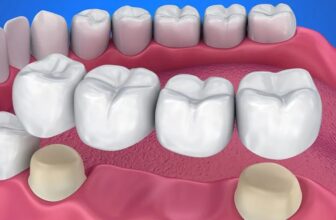
How does a doctor evaluate if someone is a good candidate for medical weight loss treatment?
Introduction:
An organized, doctor-supervised program called “medical weight loss” tries to assist people in losing weight by combining medication, lifestyle modifications, and other medical treatments. Medical weight reduction is customized to a person’s unique requirements and underlying medical issues, in contrast to commercial weight loss methods. However, not every person is a good fit for this kind of care.
A patient’s eligibility for a medical weight loss program is determined by some carefully considered parameters that physicians consider. These assessments are aimed to verify that the patient would benefit from the treatment and to limit any potential dangers. The various procedures and factors that physicians take into account when determining whether a patient is a good fit for medical weight loss treatment are discussed below.
- BMI (body mass index) and past weight.
Body Mass Index (BMI) is one of the first measures physicians look at when assessing a patient for medical weight loss. A person’s weight in kilograms divided by their height in meters squared yields their BMI. It gives an approximation of whether a person’s weight is within a healthy range.
BMI of 30 or Above: Those who have a BMI of 30 or above are deemed obese and are usually qualified for medical weight-loss programs.
BMI Between 25 to 29.9: Individuals who fall into this category, which is regarded as overweight, may also be qualified, particularly if they suffer from health issues connected to their weight.
Weight History: With an emphasis on long-term trends, doctors evaluate a patient’s weight history as well. Individuals who have experienced difficulties - Assessment of Comorbidities and Health Conditions.
Doctors assess a patient’s general health in addition to their BMI, paying close attention to illnesses that are worse by or linked to obesity. Comorbidities, or illnesses or conditions that coexist with obesity, may indicate a person is a good candidate for medical weight loss.
Common comorbidities that could lead a physician to suggest medicinal weight loss include the following:
Type 2 Diabetes: Medical weight loss can be essential for controlling blood sugar levels since excess weight can result in insulin resistance and decreased glucose tolerance.
Cardiovascular Disease: Being overweight is closely associated with conditions including high blood pressure, high cholesterol, and heart disease. Losing weight can lower your risk of developing certain illnesses.
Obesity: Obesity can cause sleep apnea by blocking airways, especially when fat builds up around the neck. It has been demonstrated that losing weight greatly improves or cures this illness.
Osteoarthritis and other degenerative joint diseases are brought on by carrying excess weight, which strains joints and causes pain. Losing weight can improve mobility and lessen pain by releasing pressure from the joints.
Obesity is a major risk factor for non-alcoholic fatty liver disease (NAFLD), a disorder in which the liver accumulates fat. This condition can be managed or reversed with medical weight loss.
- The willingness and readiness of the patient to change.
Long-term lifestyle changes are necessary for medical weight loss, and patient motivation is essential for the program to be successful. Physicians analyze the patient’s mental and emotional fitness to determine whether they are ready for change. This frequently entails:
Behavioral Assessments: Physicians may inquire about a patient’s past attempts at weight loss, including diets, workout regimens, and commercial weight-loss plans. Finding out if the person is truly prepared to adopt sustainable lifestyle adjustments is the main goal.
Psychological Health: A person’s capacity to reduce weight may be impacted by emotional eating, binge eating disorder, or other psychological issues. These problems can be found with the use of a psychological assessment. Doctors may advise treatment or counseling if necessary to address emotional issues before to - Present Eating and Lifestyle Practices:
The patient’s existing lifestyle, including their food, amount of physical activity, and daily routines, will also be assessed by a physician. This aids in their comprehension of the patient’s likelihood of adhering to the suggested modifications.Dietary History: Physicians inquire in-depth about a patient’s eating patterns, such as typical meal times, portion amounts, and food kinds. To provide you more information, they could advise you to start a food journal.
Physical Activity: The patient’s current level of physical activity is another essential component. Since exercise is a common component of medical weight loss plans, doctors determine whether the patient is physically capable of increasing their level of activity. Low-impact exercise options may be suggested if joint pain or other restrictions are present.
UrgentWay uses FDA-approved Zerona lasers to deliver exceptional results & provides a safer alternative to painful and invasive fat-reduction surgeries. Zerona laser is the first non-invasive body contouring method that removes excess fat from the hips, waist, and upper arms.
Conclusion:
A thorough evaluation of a patient’s physical condition, psychological preparedness, and lifestyle choices is necessary to determine whether they are a good candidate for medical weight loss treatment. Doctors can identify the safest and most effective weight loss solutions by carefully evaluating BMI, health conditions, existing medications, and individual motivation. Many patients find that medical weight loss provides an organized and encouraging way to reach long-term health objectives, especially in cases when conventional diets and exercise regimens have failed. Medical weight loss programs offer a long-term solution to obesity and enhance general health through individualized treatment plans and continuous monitoring.







